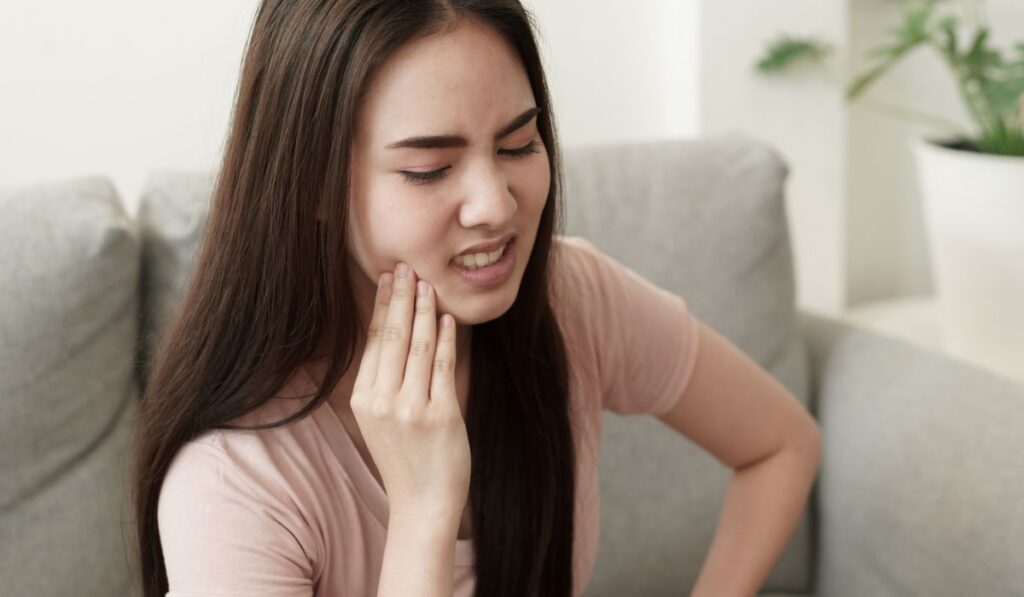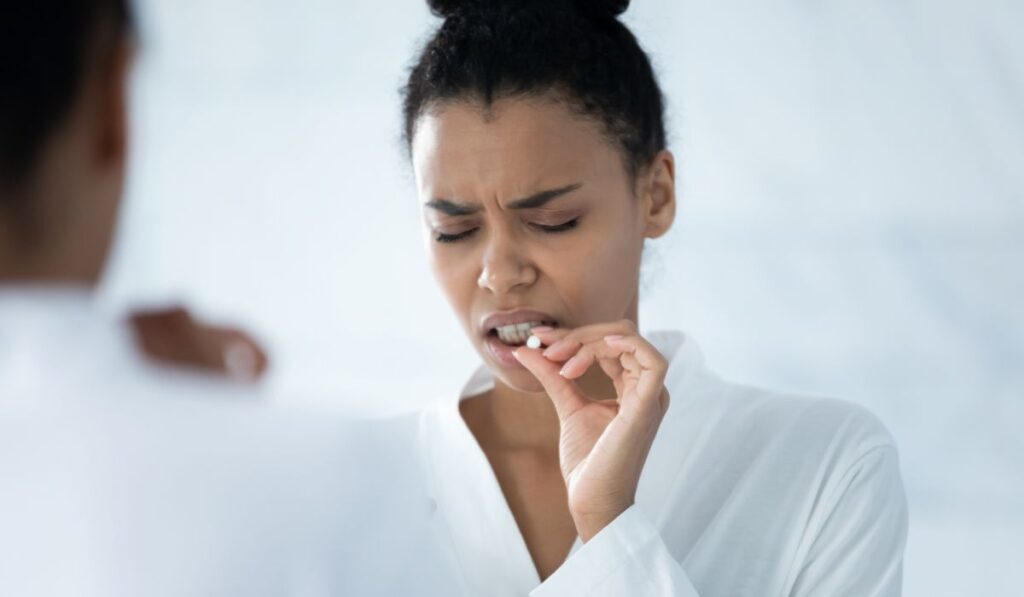Feeling pain in your jaw when you’re ill is quite common, and the pain may range from a mild aching to an unbearable stinging sensation. But what exactly causes this pain, and what can you do about it?
If your jaw hurts when you’re sick, it may be due to a TMJ disorder, dental problems, sinusitis, or allergies. Sleeplessness and anxiety may also make the pain worse. You can reduce the pain with nasal irrigation, nasal sprays, pain killers, or prescribed antibiotics.
Let’s take a closer look at why your jaw hurts when you’re sick, how to determine the underlying cause, and how to treat the jaw pain.
Why Does Your Jaw Hurt When You’re Sick?

If you feel jaw pain when you’re sick, there’s no need to worry — it’s a common problem. This pain can be caused by several factors such as a cold, sleeplessness, sinusitis, or physical and mental stress.
Jaw pain is often caused by nasal congestion. When you catch a sinus infection, you’ll feel pain in the temporomandibular joint (TMJ). You’ll feel more pain when you cough or sneeze, as it may place more pressure on your jaw.
Here are some of the common problems behind jaw pain:
Dental Problems
In many cases, dental problems, such as cavities, may lead to jaw pain. Dental problems can be a result of aging, consuming sugary foods, and poor oral hygiene. The pain in your jaw may get worse with bad oral hygiene.
Anxiety or Stress
Anxiety and stress can also lead to mild jaw pain. When you’re stressed out or sad, you may feel pain on one or both sides of your jaw. If you suffer from TMJ, the jaw pain may get worse due to stress.
Sinusitis
Most people experience some form of sinusitis that can often lead to jaw pain. Sinusitis is an infection in the air-filled space in your nose that is caused by inflammation in your nasal cavities.
The infection grows and gets worse when the air in our nasal cavities is replaced by fluid, bacteria, and viruses. Symptoms of sinusitis are headaches, sore throat, fatigue, nasal congestion, toothache, and watery eyes.
Sinusitis results in mucus secretion, which causes the throat to feel sore. As this infection takes its course, your sinuses will start swelling. This can cause pain in your forehead, nose, or jaws.
Sleeplessness
Your body will react in strange ways when you don’t get enough sleep, and jaw pain is one of the symptoms. Sleeplessness causes physical, mental, or emotional stress, which may aggravate a pre-existing teeth grinding habit and eventually cause pain in your jaws.
Allergies and Jaw Pain
People with allergies are more likely to be affected by jaw pain. Allergies cause itching in your eyes, nose, and ears which intensifies headaches or body pain. Eventually, this irritation may cause mild to severe jaw pain.
Treatment for Jaw Pain When Sick
When you feel pain in any part of your body, it becomes difficult to concentrate on daily activities, and jaw pain is no exception. Common remedies for jaw pain include decongestant spray, nasal irrigation, herbal treatment, and antibiotics.
Let’s discuss these remedies in detail:
Use Decongestant Spray
Using decongestant spray is a common and an effective way to treat nasal congestion and jaw pain. However, while using spray, keep in mind that prolonged usage can produce rebound effects, so you’ll need a specialist prescription.
Avoid using decongestant spray if you have high blood pressure, sleeping difficulties, or glaucoma.
Nasal irrigation
Nasal irrigation is one of the most effective treatments of jaw pain, especially when it’s caused by an allergy. Nasal irrigation involves flushing your nasal cavities with sterile water or nasal solution.
You can use a Neti Pot (on Amazon) and make sterline spray at home by mixing one cup of warm sterile water with ½ teaspoon of salt and ½ teaspoon of baking soda.
However, consult a doctor before making your own spray, because, if mixed incorrectly, the spray can further intensify the pain.
Herbal Treatment
Herbal treatment is a common remedy for acute jaw pain. Certain herbal treatments are considered effective for treating sinusitis.
For example, GeloMyrtol forte (an oral capsule of essential oils and sinupret) is one of the most commonly used herbal mixtures in the USA for the treatment of cavity problems.
You can also chew a few mint leaves for a short-term respite from the stinging pain!
Antibiotics

If natural remedies or nasal irrigation doesn’t work, your doctor may prescribe antibiotics as a last option. Antibiotics are effective in curing chronic pain caused by infectious bacteria that can’t be treated with nasal spray or nasal irrigation.


